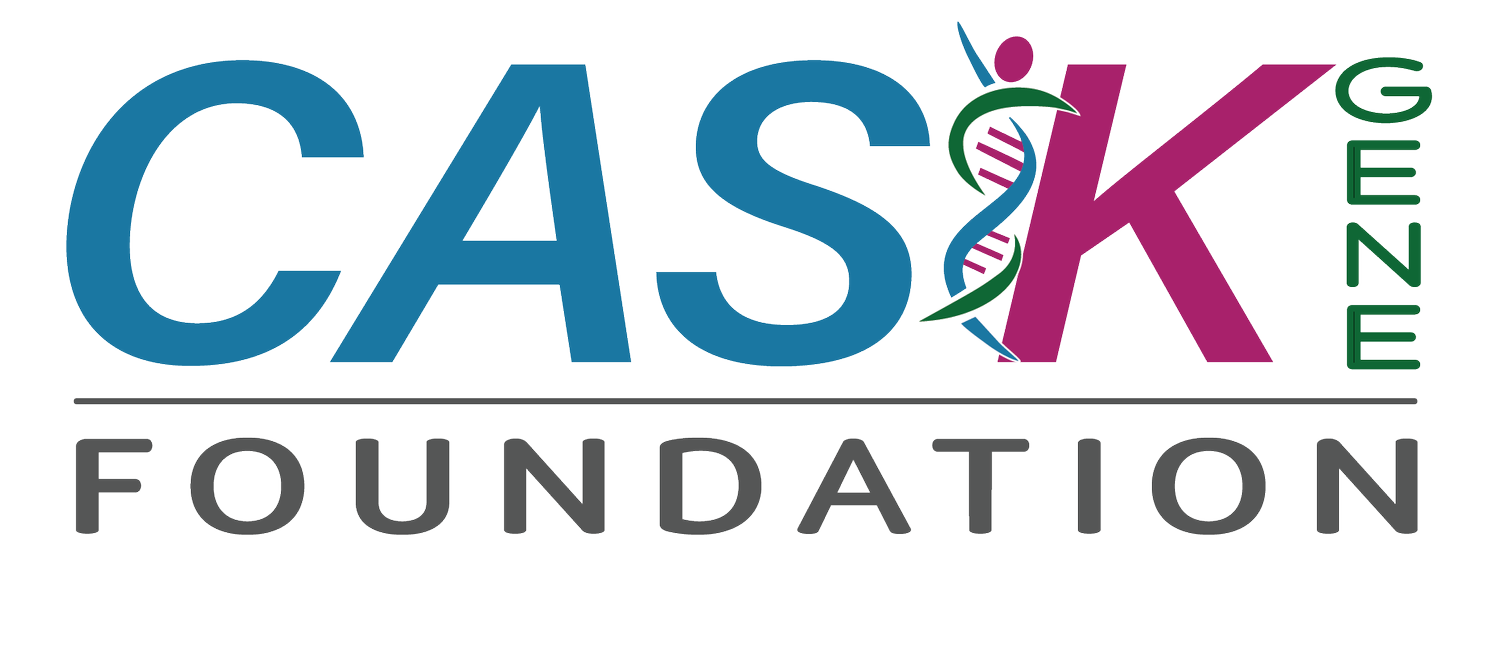
CASK DISORDER DIAGNOSIS
Because the gene was discovered before any CASK-specific clinical syndrome was identified, there is no “CASK Syndrome” or “clinical diagnosis” for CASK. A CASK diagnosis can only be made with genetic testing. Here are some of the genetic tests you may have encountered, or which may be in your future:
Chromosomal Micro Array (CMA) - This is quite often the first genetic test ordered for a child with Developmental Disabilities or Congenital Anomalies (nih.gov).This test looks for extra or missing segments of chromosomes (jax.org). If a child is missing the segment of the X chromosome that includes the CASK gene, than this test could identify that missing segment.
Single Gene Testing - “Single gene tests look for changes in only one gene. Single gene testing is done when your doctor believes you or your child have symptoms of a specific condition or syndrome.” (cdc.gov) If there is strong evidence to suggest a disorder is CASK-related, even if a chromosomal micro-array revealed “normal” or “negative” results, this gene can be singled out and investigated at a closer level.
Gene Panel Testing - “A panel genetic test looks for changes in many genes in one test. Genetic testing panels are usually grouped in categories based on different kinds of medical concerns.” (cdc.gov) Because it is possible for a CASK gene change to cause a wide variety of medical concerns, depending upon the specific type of gene change, it may be found in a wider investigation such as a genetic panel test for conditions such a microcephaly or epilepsy.
Whole Exome Sequencing (WES) - This is a large-scale test that looks at all the genes within the DNA. Because of the larger scale of this test, it is more likely to find a genetic anomaly than a panel test that would only look at a smaller selection of genes.
Whole Genome Sequencing (WGS) - This is the largest-scale genetic test (and naturally the most expensive), and it looks at all parts of the DNA.



